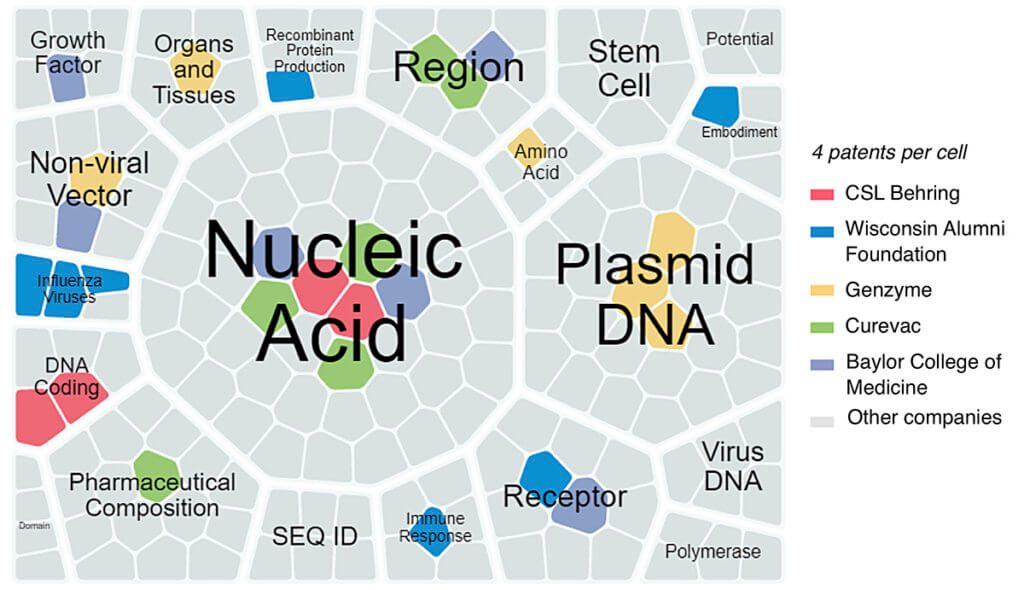
The global gene therapy market is expected to reach $13 billion by 2024 as new treatment options target cancers and other diseases. Dr. Marxa Figueiredo, associate professor of basic medical sciences in the Purdue University College of Veterinary Medicine, has helped lead a team of scientists from Purdue and other research institutions around the world who came together to better understand the growing number of worldwide patented innovations available for gene therapy treatment.
Dr. Figueiredo and her fellow team members specifically focus on nonviral methods, which use synthetic or natural compounds or physical forces to deliver materials generally less toxic than their viral counterparts into the therapy treatments. “The possibility of using nonviral vectors for gene therapy represents one of the most interesting and intriguing fields of gene therapy research,” said Dr. Figueiredo, who works with the Purdue Research Foundation Office of Technology Commercialization to patent her technologies related to health. “This is an innovative method for identifying the technological routes used by universities and companies across the world and uncovering emerging trends for different gene therapy sectors.”
The scientists used big data, patent, and clinical data mining to identify technological trends for the gene therapy field. The team’s work is presented in the February 7 edition of Nature Biotechnology. They envision that their analysis will help guide future developments for gene therapy.
The research project brought together investigators from across the globe in a joint effort to use new databases and methods to better understand the trends of the gene therapy field in respect to nonviral vectors. Dimas Covas, coordinator of the Center for Cell-based Therapy, affiliated with the University of São Paulo in Brazil, lent his extensive experience in cell therapy. Dr. Figueiredo, Aglaia Athanassiadou, and Virginia Picanço-Castro contributed their extensive experience with nonviral vectors for gene therapy. Cristiano Pereira and Geciane Porto brought their expertise in economics and business administration to the analyses. Each contribution was fundamental to achieving a new way to identify technological trends in this field.
“This work brought together investigators from very diverse disciplines to create a different perspective on the gene therapy field,” Dr. Figueiredo explained. “Our groups continue to work individually or in collaboration to generate and patent new vectors to help fill the needs of this re-emerging field of nonviral gene therapy.”
The Purdue Research Foundation Office of Technology Commercialization operates one of the most comprehensive technology transfer programs among leading research universities in the U.S. Services provided by the office support the economic development initiatives of Purdue University and benefit the university’s academic activities through commercializing, licensing and protecting Purdue intellectual property.
Click here to view a complete news release about the research.
